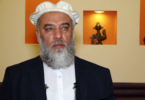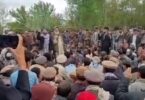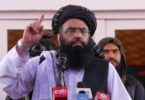Monitoring Desk
KABUL: SIGAR’s latest quarterly report says that the Taliban launched 8,204 attacks in the fourth quarter of 2019, a 17 percent increase over the 6,974 attacks launched in the same time during the previous year.
According to data from Resolute Support, September 2019, the month of the Afghan presidential election, saw the highest number of enemy-initiated attacks in any month since June 2012 and the highest number of “effective enemy-initiated attacks” since recording began in January 2010, the report said.
October 2019 had the second highest number of enemy-initiated attacks in any month since July 2013.
“Both overall enemy-initiated attacks and effective enemy-initiated attacks during the fourth quarter of 2019 exceeded same-period levels in every year since recording began in 2010,” the report said, but noted: “While the number of overall and effective attacks increased this quarter, the proportion of overall attacks that were effective was similar to the same period in 2018.”
When looking at 2019 as a whole, enemy attacks appeared to decline early in the year while peace talks were ongoing. But a turbulent last six months resulted in increases in overall enemy attacks (6%) and effective attacks (4%) in 2019 compared to the already high levels reported in 2018, the report said.
The SIGAR report said that the geographic distribution of enemy activity in 2019 remained largely consistent with recent years, with heavy fighting in southern and western Afghanistan. However, enemy activity increased and spread into larger areas of the north and east, it said.
The Afghan war is still in “a state of strategic stalemate” that can be solved only through a negotiated settlement between the Afghan government and the Taliban, Secretary of Defense Mark T. Esper said this quarter, according to SIGAR.
After a cessation of direct peace talks in September, President Donald J. Trump announced that he restarted the dialogue between the United States and the Taliban in late November.
A January 22 White House statement said that President Trump’s goal is for the Taliban to demonstrate “a significant and lasting reduction in violence… that would facilitate meaningful negotiations on Afghanistan’s future.”
However, the Afghan government has so far consistently rejected the concept of a reduction in violence, saying that the term “reduction in violence” does not have an accurate meaning in legal and military terms, and is not practical. Afghan officials are currently demanding a cease-fire, similar to the one that took place in June 2018, before beginning peace negotiations with the Taliban.
US special envoy ZalmayKhalilzad visited Kabul on Monday, and there have been conflicting reports about his take on the status of the talks following meetings with President Ashraf Ghani and former president Hamid Karzai.
Karzai’s office said in a statement that the US representative “expressed his optimism about the developments and progress” in the peace process, and said he hoped an agreement will be reached with the Taliban.
This was echoed by former finance minister Omar Zakhilwal, also present in Khalilzad’s meeting with Karzai, who in a tweet said he heard “good news” about the peace process:
“Was good news to hear about encouraging progress and the sense of optimism for more.”
But Ghani’s team at the Presidential Palace, tweeting about their separate meeting, said: “Mr. Khalilzad stated that there wasn’t considerable progress in talks with the Taliban and that he (Khalilzad) hoped they will achieve a result in this respect.”
On Friday, Jan. 31, Khalilzad visited Islamabad and met with Pakistani officials including Pakistan’s Foreign Minister Shah Mahmoud Qureshi, Chief of Army Staff General QamarJavedBajwa, and other government officials, according to a statement by the US embassy in Pakistan
In Kabul, views on peace are divided between Ghani and Abdullah’s factions. Ghani’s Presidential Palace wants a ceasefire ahead of a peace deal between the US and the Taliban, and Chief Executive Abdullah’s office insists on taking advantage of the current opportunity for peace – which is the Taliban’s willingness for a reduction in violence – for a short period.(TOLOnews)






